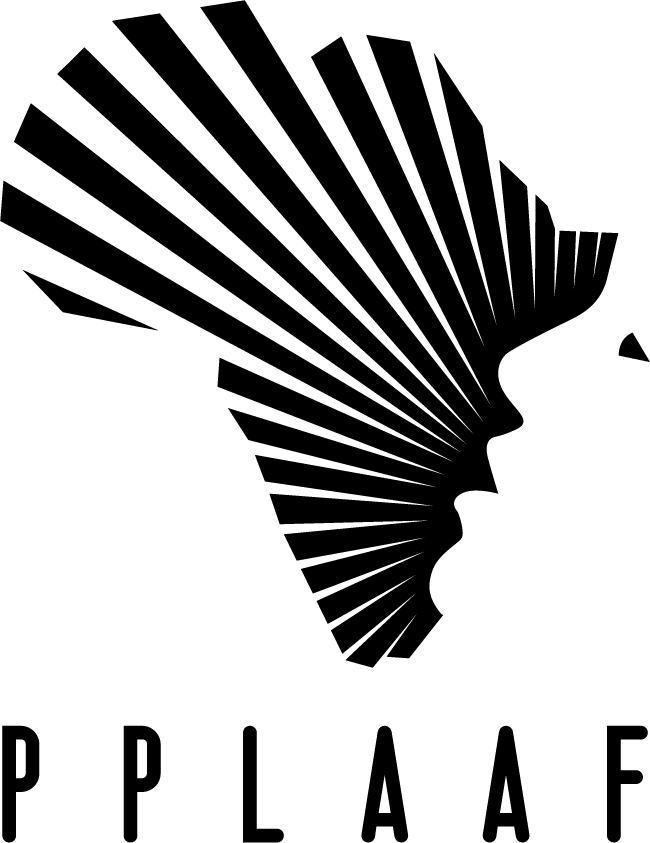Published in 2019
Relevant legislation:
- Constitution of the Second Republic of The Gambia, (1996)
- Labour Act, 2007
- Information and Communications Act, 2009
- Criminal Code, 1933
- Official Secrets Act, 1922 (not available online)
- Public Security Act (not available online)
Summary
Hopes were high that the end of the 22-year dictatorship of Yahya Jammeh in January 2017 would represent a turning point for human rights, media freedoms and civil liberties in The Gambia. However, while the newly inaugurated government of Adama Barrow has hinted at plans to amend draconian restrictions of freedoms, no meaningful legislation has been put forward to date.
Hopes have been further dampened by the suspension and arrest of a legal adviser who allegedly blew the whistle over the lack of any serious reforms taking place at the agency in post-Jammeh Gambia and continued violations of freedom of the press and speech.
Whistleblowing protections are limited to provisions in Labour Act that disallows disciplinary action or termination for making a complaint against the employer. Department of Labour Officers are engaged to investigate claims of legal violations, but no channels are set out for the lodgment of complaints.
The Gambian Constitution provides “a fundamental law, which affirms our commitment to freedom, justice, probity and accountability”. Freedom of “speech and expression, which include freedom of the press and other media” are specifically guaranteed. However, restrictive media and secrecy laws contradict the Constitution and have resulted in Freedom House ranking the Gambian press as “not free.”
Whistleblower laws and policies
The 2007 Labour Act notes that “the filing of a complaint or the participation in proceedings against an employer involving alleged violation of any laws, regulations or collective agreements” does not constitute valid grounds for dismissal or disciplinary action. In the event of a dispute, it falls on the employer to prove that a dismissal was justified. When a complaint of unfair dismissal is found by the tribunal to be “well founded,” the Industrial Tribunal may order reinstatement of the employee and/or “award such compensation as the Tribunal considers just and equitable,” based on the “loss sustained by the employee in consequence of the dismissal.”
The Act prohibits the victimization of employees for “anything done in pursuance” of the administration of the Act, and notes that employers shall “grant an employee every opportunity and necessary facilities for communicating freely” with officers of the Department of Labour responsible for investigating alleged breaches of the Act. Officers are obliged to “treat as absolutely confidential the source of any complaint” and refrain from informing the employer that an inspection was made “in consequence of a complaint”.
No further legal protections for whistleblowers are available.
Weaknesses and needed reforms
The Gambia’s whistleblowing protections are extremely limited. There is no evidence that such reforms are planned, despite calls from the media and civil society to implement comprehensive whistleblowing legislation. Neither has President Adama indicated that such legislation is a priority in the first months of his presidency, despite his rhetoric of transparency and reform.
Secrecy laws
The Gambia’s Official Secrets Act is not available online. According to Gambian news sources, the Act was originally introduced in 1922 by the British Colonial administration to prevent unauthorized disclosure of official documents and information. The law was amended in April 2008 and it became illegal to publish or communicate “any secret official code, word, sketch, plan, article, note or other document” which may be useful to an enemy. The Jammeh government also increased the penalties for the offences of disclosure of official information and set a minimum sentence of 30 years and a maximum term of life imprisonment. Journalists reporting on security issues run the risk of contravening the Official Secrets Act without any criminal intention on their part. Furthermore, the Public Security Act can be invoked to compel journalists to reveal their sources or face a heavy penalty or jail time.
A Gambian journalist living abroad who was contacted for this report notes that the Secrecy Act prohibits civil servants from providing specific information to journalists, making “the working conditions of journalists extremely difficult, as they cannot effectively pursue their duties”. He further claims the Act facilitates corruption, as “Gambian civil servants, most of whom are poorly paid and often the breadwinners of large extended families, often tend to turn a blind eye to wrongdoings in their departments out of fear of being sent to prison for a long time or being hit with a heavy fine.”
Media and speech laws
In June 2017, Adama Barrow declared that the press is “already free” under the new regime and that his cabinet is in the process of amending media laws. However, restrictive media laws remain in place. Sedition, defamation and the publication of false news all remain offenses under the Criminal Code, and each is punishable of a prison term of “not less than one year,” and/ or a fine. In 2013, knowingly providing false information to a civil servant became punishable by up to five years in prison, having previously been a misdemeanor publishable by 6 months in prison.
Despite claims to the contrary, the Barrow administration has overseen notable violations of press freedoms. In June 2017, a journalist named Baboucarr Sey was arrested and detained for several days after organizing a press conference to cover protests over the sale of a community football field to a property developer with close ties to President Adama Barrow. Neither has freedom of speech been respected by the new government, as demonstrated by the February 2017 arrest of Fatou Badjie, a single mother who was accused of making “rude comments” about President Adama Barrow. Both Sey and Badjie have been released on bail, with prosecution pending.
In addition, the 2009 Information and Communications Act was amended in 2013 to provide for a 15-year prison term and a fine for anyone convicted of using the internet to spread false news, make derogatory statements, incite dissatisfaction, or instigate violence against the government or public officials. The then-Information and Communications Minister, Nana Grey-Johnson, is reported to have justified the amendment by claiming that “some Gambians had tried to set the people and security officials against the government… by inciting the people to engage in unpatriotic behaviour, spreading false news and engaging in criminal defamation against government officials”.
Whistleblower cases
The 2017 detention of a legal adviser of the national spy agency (NIA) accused of breaking the country’s secrecy laws has garnered a great degree of media attention, as it is the first of its kind in the post-Jammeh era and seen to be indicative of how the Barrow government may treat whistleblowers and dissidents. Angered by the alleged lack of meaningful reform under the Barrow administration, Bubacarr A.M.O Badjie accused the agency of having a workforce that is 60% “functionally illiterate” and claimed that the “usefulness of such people as NIA agents is very insignificant”. In a letter to President Barrow which he also provided to the media, Mr. Badjie also claimed that a large percentage of the staff had close ties to former-President Jammeh’s family and were recruited into the agency by past and present directors. Reports claim that Mr. Badjie had his employment terminated and was arrested in June 2017 by agents of the NIA (recently renamed the State Intelligence Service and having theoretically been stripped of arresting powers), which alleges that Mr. Badjie’s claims “constitute violations of the official secrets and code of conduct binding on all active and serving officers of this intelligence service.”
Media rights and freedom
Freedom House rates press freedoms in The Gambia as “partly free” in the 2018 Freedom of the Press index, noting that “authorities stifle media freedom through a combination of criminal prosecutions, physical intimidation, censorship, and the promotion of government views in state-run or friendly private outlets”. The Gambia received a Press Freedom Score of 38.36 out of 100 (0=best; 100= worst), representing a rise of 46 spots in just the last two years. The report provides details of the detention of the manager of “one of the country’s few remaining independent radio stations”, Alagie Abdoulie Ceesay, for “seditious intent,” and notes that journalists are frequently detained on dubious charges. Although sentenced to four years jail in November 2016, Cessay escaped and fled to Senegal whilst receiving treatment for torture in hospital.
A March 2015 report by the UN special rapporteur on torture and other cruel, inhuman, or degrading treatment or punishment found that there was a a State practice of intimidation and serious threats, including death threats, to the physical integrity of journalists and human rights defenders that amounted to cruel, inhuman or degrading treatment or even torture.” However, there are some indications that the situation may be improving. Reporters without Borders (RWB) ranks The Gambia 122 out of 180 countries in its 2018 World Press Freedom Index, an improvement of 21 places since 2016. RWB cites hopes that the 2017 inauguration of President Adama Barrow, representing the end of 22 years during which Yahya Jammeh established a “climate of terror for the media”, might bring a new respect for media freedoms. RWB commends the new government’s “pledge to amend the country’s media laws and shed light on the deaths of journalists during the Yahya Jammeh dictatorship”.
Knowledge, support and action centers
The Gambia Echo
The Gambia Echo is a legally registered pro-democracy online newspaper in Raleigh, North Carolina, USA for the “unfettered dissemination of credible news; informing, educating, and entertaining a broad spectrum of readership across the African Diaspora”.
- Contact person and title (if known): Not available
- Address: 7407 Sandy Creek Drive, Raleigh , NC 27615 USA
- Tel: +1 (919) 637-0643
- Fax: Not available
- website: thegambiaecho.com
- E-mail: editor@thegambiaecho.com, egsankara@yahoo.com
Further information
Freedom House rates The Gambia as “not free” in its 2017 Freedom in the World index. The report highlights violence around the 2016 elections – including the death by torture of an opposition member, Solo Sandeng, in state custody following his participation in a peaceful demonstration for electoral reform and lengthy sentences handed to opposition leaders their participation in protests demanding transparency about the fate of Mr. Sandeng.




